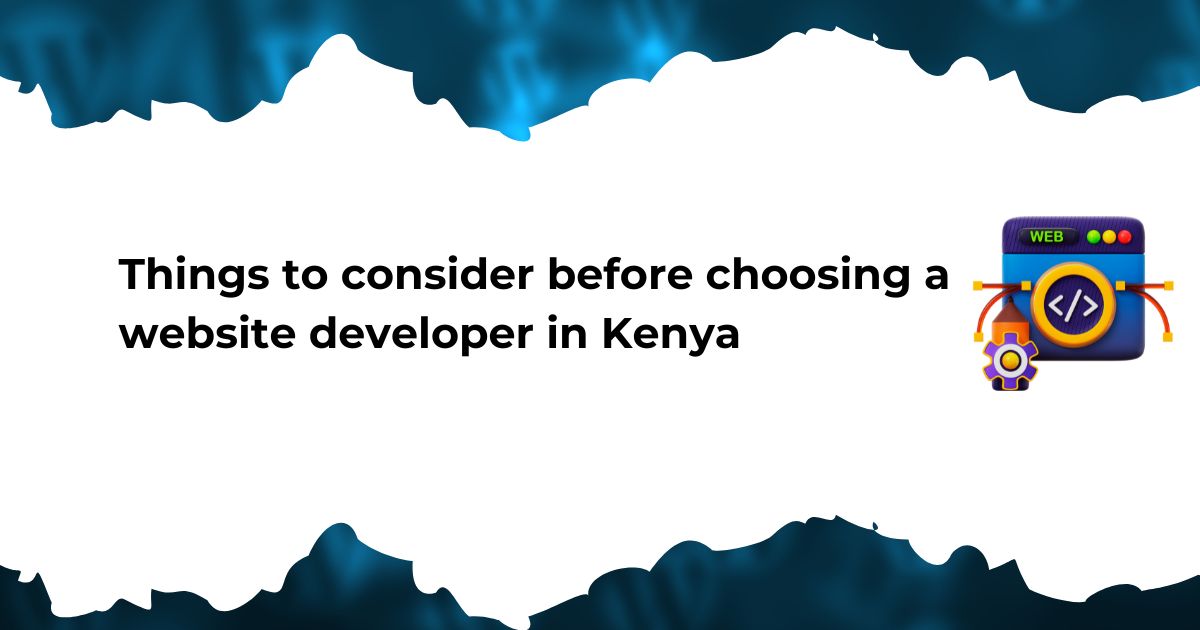In today’s fast-paced digital landscape, staying connected with customers is more crucial than ever, and what better way to do that than through a platform most people already use daily? With over 2 billion active users, WhatsApp has emerged as a powerful channel for businesses looking to enhance customer engagement. This is where WhatsApp chatbots come into play—intelligent, automated solutions designed to facilitate seamless communication and improve customer service. Whether you’re a small startup or a large enterprise, leveraging a WhatsApp chatbot can streamline responses, address customer queries instantly, and ultimately boost satisfaction levels.
The rise of WhatsApp chatbots is revolutionizing how businesses interact with their customers, moving beyond traditional customer service methods to deliver instant, personalized experiences. Imagine a world where customers get immediate answers to their questions and assistance with their needs, all within the comfortable space of a messaging app. This article dives into the world of WhatsApp chatbots, exploring their significance, key features, and how they can empower businesses to foster deeper relationships with their audience. So, if you’re curious about integrating this technology into your business strategy, stick around—you’re in the right place!
How WhatsApp Chatbots Work
So, let’s talk about how WhatsApp chatbots work. These intelligent platforms engage customers via the WhatsApp Business API, allowing businesses to automate conversations while providing a seamless user experience. When someone sends a message, the chatbot can immediately respond based on pre-set rules or, better yet, through artificial intelligence that understands and processes human language. For instance, Engati’s WhatsApp Chatbot relies on a proprietary NLP engine, which enhances interaction by mimicking human conversation, making it efficient and user-friendly. Plus, utilizing powerful models like OpenAI’s ChatGPT means these bots can generate contextually relevant replies on the fly, adding further depth to chats. Customers appreciate quick and helpful responses and businesses can handle more queries without needing extra staff, which is a win-win.
Now, implementing WhatsApp chatbots for business involves several practical steps and considerations that can significantly enhance customer engagement and streamline operations.
Implementing WhatsApp Chatbots for Business
Implementing WhatsApp chatbots for business can truly revolutionise how you engage with your customers. You’ve got this incredible tool at your disposal that can automate responses, collect leads, and even provide immediate support. For instance, Poppy’s does a fantastic job leveraging a WhatsApp chatbot to not just generate leads, but also offer customer support efficiently in both English and Spanish. And the best part? All you really need to get started is a WhatsApp Business Phone Number along with the necessary API key. Now, platforms like Engati let you build your chatbot without any coding experience required, which is especially helpful for those just dipping their toes into chatbot technology. They even offer a free trial that lasts seven days, giving you enough time to play around and get the hang of it. It’s pretty clear that integrating a WhatsApp chatbot into your operations can lead to improved sales and better customer interactions, particularly for businesses in retail and eCommerce.
With so many businesses already reaping the rewards, it’s no wonder more companies are looking at efficient ways to engage with their audiences. For any forward-thinking company, understanding the key features of effective WhatsApp chatbots becomes essential.
Key Features of Effective WhatsApp Chatbots
When considering the key features of effective WhatsApp chatbots, you’ll find a few elements that really stand out. First off, automation really plays a big role; automating responses to frequently asked questions doesn’t just improve efficiency but also saves on valuable resources. With the capacity for 24/7 customer support, businesses can ensure that their customers feel heard—such an assurance can make a world of difference. Think about it: no longer do customers have to wait for business hours to get assistance, and that swift response time can enhance their overall experience. Plus, with Engati’s innovative platform incorporating Optical Character Recognition, customer interaction becomes much smoother; this tech enables chatbots to understand and respond to a variety of queries more effectively than ever. Speaking of engagement, it’s worth noting that the WhatsApp Business API encourages a more interactive dialogue, and it allows companies to send tailored promotional messages through predefined templates, creating a more personalised touch to communication. As one can see, these features not only enhance user experience but also open avenues for efficient customer engagement. Yet, building these chatbots isn’t without its challenges; understanding those hurdles is essential as businesses aim to implement these tools successfully.
Common Challenges in Developing WhatsApp Chatbots
When developing WhatsApp chatbots, you’re likely to encounter a few common challenges along the way. For starters, managing high volumes of messages can really ramp up costs, particularly if you’re using services like Twilio or directly accessing the WhatsApp Business API; that initial investment can be daunting. Security issues can’t be overlooked either, as handling sensitive customer data demands a lot of trust. Then there’s the task of creating a logical conversation flow. It’s crucial for keeping customers engaged, but it can also feel like threading a needle, especially if you’re trying to anticipate various user intents. Updating chatbots regularly to incorporate fresh information, without getting bogged down by manual training processes—as seen with tools like Poppy—can present yet another hurdle. And, if you’re in eCommerce, be mindful of the risks of high cart abandonment rates due to delays in responses; that can really hurt your bottom line. So, while these challenges are significant, they’re not insurmountable, and as technology evolves, new strategies will emerge to tackle these issues with more efficiency. Keeping an eye on upcoming innovations in the chatbot space is essential for those looking to stay ahead.
Future Trends in WhatsApp Chatbot Technology
When we look ahead, the future trends in WhatsApp chatbot technology seem pretty exciting. For starters, you’ve got the ongoing integration of generative AI, which is supercharged by advanced models like OpenAI’s ChatGPT. This is changing the way chatbots communicate, making interactions more natural and engaging. Companies are rolling out new features that enhance usability, ensuring that the WhatsApp Business API is more accessible than ever. Plus, the movement towards omnichannel support means that chatbots won’t just operate on one platform; they’ll seamlessly connect with other messaging apps. This shift could be game-changing for businesses looking to boost their customer engagement strategies. On top of all that, using AI-driven technologies like Whisper for processing voice messages really helps streamline communication. It’s all about creating an experience that feels hyper-personal to the user, allowing businesses to connect with their customers in a more direct and effective way. With all these innovations on the horizon, it’s clear that the landscape of WhatsApp chatbots is on the verge of a major transformation.
Frequently Asked Questions
What platforms can I use to build a WhatsApp chatbot?
When you’re looking to build a WhatsApp chatbot, you might be wondering what platforms are out there that could help you do just that. Well, plenty of options are available today. For instance, Engati’s no-code chatbot builder is gaining traction because it allows users to create conversational AI solutions without needing extensive programming knowledge. And then there’s Twilio, which offers a more developer-focused approach, giving you control over customization and integration. Then again, if you’re after something quick and straightforward, platforms like Chatfuel can also be useful, though they might not offer the depth of capabilities that those others do. Now, thinking about these various tools does lead us to consider how WhatsApp chatbots can significantly enhance customer engagement, doesn’t it?
How can WhatsApp chatbots enhance customer engagement?
When we think about how WhatsApp chatbots can really enhance customer engagement, it’s clear that they offer a lot more than just automated responses. For instance, chatbots can provide instant support round the clock—perfect for businesses looking to maintain a strong presence whenever a customer has a question or concern. In fact, studies show that nearly 70% of consumers expect immediate responses to their inquiries, and chatbots can meet that need efficiently. They go beyond simple FAQs by personalising conversations and providing tailored recommendations, which can drive deeper interactions. But it’s not just about speed; these chatbots also gather and analyse data, allowing businesses to refine their strategies based on consumer preferences and behaviours. So, with all these advantages, it makes you wonder—are there any security concerns associated with using WhatsApp chatbots?
Are there any security concerns associated with using WhatsApp chatbots?
When it comes to using WhatsApp chatbots, security is a real concern for many. With sensitive data floating around—think patient records or financial details—these bots need to handle information carefully. For starters, encryption is a must; without it, the data can fall into the wrong hands, which is a nightmare scenario. Now, you might be wondering about compliance issues too; well, with regulations constantly evolving, especially in healthcare and finance, chatbots have to stay updated to avoid massive fines or legal trouble. There’s also the question of user trust; if people don’t feel secure using a service, they simply won’t use it, right? A recent study highlighted that 49% of consumers express major worries about data privacy when interacting with chatbots. Therefore, it’s essential for developers to implement robust security measures while ensuring that the technology remains user-friendly, easing the minds of those who are rightfully concerned about how their data’s being handled. Security goes beyond just tech specs; it’s about building trust and reliability in a world where data breaches seem all too common.
Conclusion
In conclusion, WhatsApp chatbots are transforming the way businesses interact with their customers. By streamlining communication, we can significantly enhance customer engagement and satisfaction. As we’ve seen, implementing these chatbots effectively can lead to more efficient operations, while their key features make them valuable tools in our digital toolkit.
However, developing WhatsApp chatbots does come with its challenges. It’s crucial to stay informed about the latest trends and advancements in chatbot technology to overcome these hurdles. As we move forward, I believe that embracing WhatsApp chatbots will not only simplify processes but also open up new avenues for growth and innovation.




